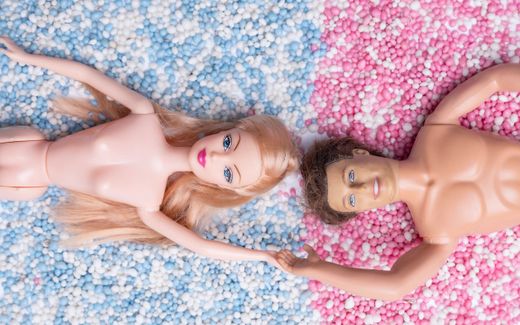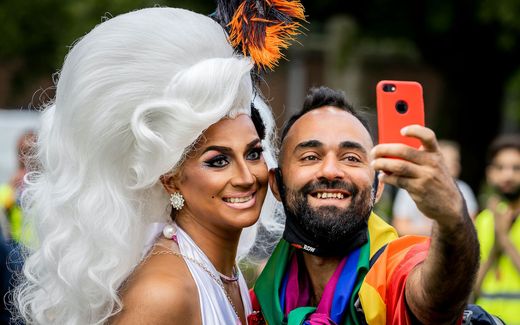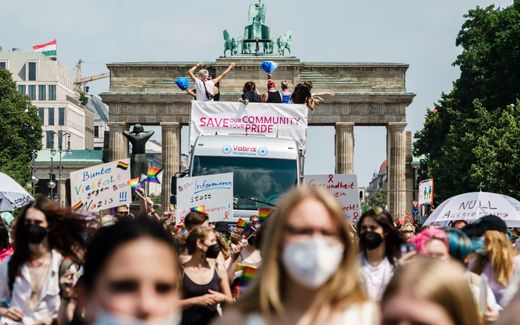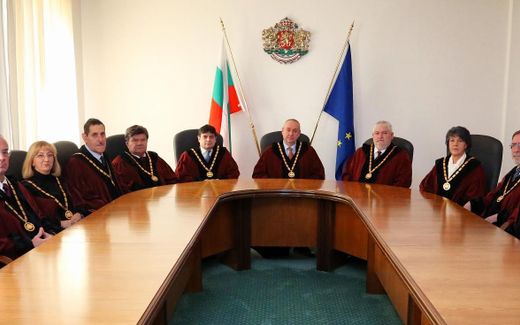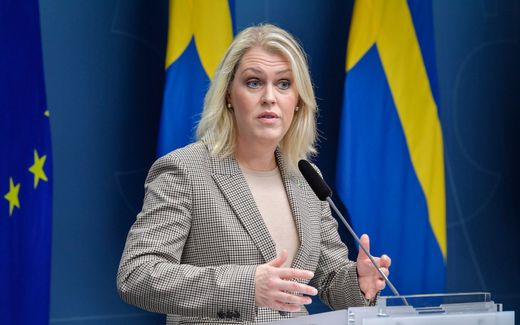Transgender emancipation is threatening, finds Carl Trueman
01-01-2022
Opinion
Jan-Willem Kranendonk, RD
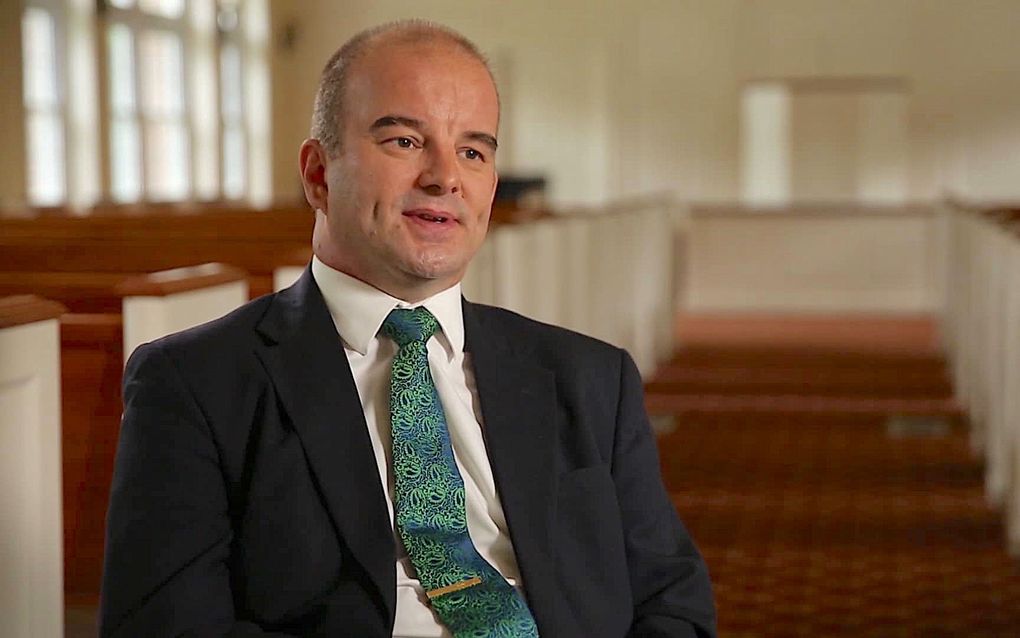
Carl Trueman: "We tend to think these days that the world around us needs to change to fit our feelings." Photo Juicye Cumenism
Opinion
Transgender people are much stronger in their pursuit of emancipation than homosexuals, Carl Trueman says. Gays have never denied the difference between male and female. But transgenders do. They also press others to go along with them. They contradict the biological distinction that the Creator has devised, according to Trueman.
For his work, Trueman (53) usually focuses on theologians from the 16th and 17th centuries. He works at Grove City College in Pennsylvania. His primary subject is Church and Dogma History. Therefore, it struck many people that Trueman recently wrote a study about the Sexual Revolution and the emancipation struggle of transgender ideologues. He felt compelled, he says, because of the trends in society. "Christians often underestimate the impact of the sexual revolution on our time and our culture."
The title of Trueman's study sounds more like a book on psychology than a description of the Sexual Revolution: "The Rise and Triumph of the modern Self." He has to chuckle when asked for an explanation. "Christians often make a mistake by thinking that the Sexual Revolution stands by itself. But it is rooted in underlying cultural changes. Ultimately, it's about the question: who are you as a human being?"
Focused on feelings
Trueman, until 2018 Professor of Historical Theology and Church History at Westminster Theological Seminary, notices that modern thinkers focus on human feelings when answering that question. "Feelings are certainly important. Just read the Psalms. In them, you look into the hearts of the poets. They do not only share their thoughts but especially their emotions.
But there is a big difference between then and now. In the past, we adapted our thoughts and feelings to the outside world to function in society. Today, we tend to think that the world around us must change to fit our emotions and our psychological needs."
In his book, Trueman shows that this shift has been fundamental to modern thinking about sexuality. "Today, people create their identity out of their sexual preference and experience. That is the thinking of Sigmund Freud. It is, of course, true that our sexual desires are important for who we are. However, important is to what extent we give these desires authority."
Activity and identity
Nowadays, feelings are normative. "In ancient Greece, there was also a lot of homosexuality. But that was seen as an activity. Today, it is an identity."
Fundamental to this is that through philosophers like Nietzsche, we have said goodbye to God and man as the image of God. As a result, morality no longer has a fixed basis, Trueman believes. "Subsequently, influenced by left-wing political ideas, there has been an increasing emphasis on sexual freedom, with the aim of 'liberating' people so that they can follow their inner desires, their feelings. In short: you do not act homosexual but are homosexual or transgender.
This is why the cultural confrontation is more intense: You can reject someone's behaviour, but you cannot take away his identity. For this reason, saying: I accept the homosexual as a person, but I reject the homosexual practice, does not really work in discussions. This makes it difficult for Christians to explain their position. We must show, mainly through our actions, what we stand for; by being charitable and hospitable to our neighbours who are not Christians."
Our feelings have become essential that even the body is subordinated to it. "So, if you feel like a woman in a man's body, the body has to adapt. That sounds very logical in our society. But if I had told this to my grandfather forty years ago, he would have burst out laughing. Something like that did not fit in at all with his vision of society."
The cause, according to Trueman, is the separation of sex (biological sex) and gender (psychological sex). "The French feminist Simone de Beauvoir states that one is not born a woman or man but is taught to behave as a man or woman. According to her, biology is irrelevant."
Creation order upside down
Of course, Trueman says, culture influences the perception of being a man or a woman. "A woman in Africa behaves differently from a woman in America. But that does not make biology irrelevant. The female body is built differently from the male body, and that involves more than just sexual characteristics. There are also hormonal differences, so that a woman, for example, experiences time differently from a man. The monthly period is a big thing in the life of an adult woman. It is not the case with men. Therefore, the biological distinction is indeed relevant."
According to Trueman, the emancipation efforts of transgender people are shocking, threatening and problematic. "Shocking because they deny biological characteristics the Creator gave to men and women. It goes beyond what homosexuals say. They do recognise the biological distinction between men and women. Transgenders turn the creation order completely upside down."
Neighbour
According to Trueman, the transgender ideology is threatening because it forces the environment to go along with someone's gender of choice. "If the man next door chooses to continue as a woman, I have to make a choice. Either I conform, or I confront him or her by not acknowledging his choice. This causes friction. In the long run, this can make the position of Christians difficult. Especially if the government forces institutions to respect and accept someone's gender of choice."
However, gender ideology also leads to practical problems, Trueman believes. He sketches the situation of a lesbian couple. "After ten years, one of the partners chooses to live as a man. The other woman has a dilemma. Does she still love the original woman, or does she love the new man?"
Trueman has noticed that in the US the number of lesbians is declining sharply with the growing interest in transgenderism. "And by now, many people are also 'queer' because being gay, lesbian or bisexual is too limited."
The prevailing thought in modern society is that we will all be happiest if we allow each other freedom of choice. "Rules should bind no one; moral frameworks are fluid. Moreover, we believe that we can be whatever we want to be and that we can determine our own identity. Medical technology such as hormonal treatment and surgical procedures, therefore help to fulfil people's desires."
Divorce
In addition, the new perception of marriage contributes to the rise of transgenderism, Trueman argues. "For centuries, marriage was like a lifelong commitment of one man and one woman. They promised each other love and fidelity for the rest of their lives. Strictly speaking, the change came when divorce was accepted for reasons other than adultery. After that, marriage was more about intimate friendship than about lifelong fidelity. And yes, you can have friendships with all sorts of people. And friendship can also come to an end. In marriage, you commit to two things: to love and to remain faithful. With friendship, it is all about the good feeling. You choose a friend because you feel comfortable with him."
The American church historian is afraid that the government may intervene in the future when parents educate their children the traditional perception of marriage and are critical of gender ideology. "Everyone is allowed to choose his own identity. But these identities are not always compatible with each other. Therefore, somebody has to referee. This is giving rise to a remarkably authoritarian form of government. That is the paradox of the current political libertarian paradigm. The government determines how we should think about the rights of transgender people. I find mixed toilets very authoritarian; just like when women in a gym hall have to accept that they have to shower with biologically male people because these men think they are women. Since the fall of the monarchies in the 19th century, we have not seen this kind of authoritarianism, except perhaps in Nazi Germany."
Feeling good
Trueman also notices the growing dominance of feelings in the church. "Then it is not only about accepting marriage relationships of homosexuals or transgenders. It is part of a broader change. People used to go to church out of concern. They wanted to lay their sorrows down before God; they went there to prepare themselves for eternity. Nowadays, people tend to go to church to feel good. You can see that in the emphasis on worship songs. I also notice this at funerals. The focus is not on grief, mourning and the suffocation of death. Funerals become celebrations of life. That is the emotional culture at its best."
This does not mean that Trueman wants to ignore the feeling in the spiritual life. "Church history shows that it is important to pay attention to this. Think of Wesley, Whitefield and Jonathan Edwards. In the Netherlands, the Further Reformation (the period in Dutch church history -from roughly 1600 until 1750- following the Reformation, ed.) paid attention to the experience of salvation. The emphasis on the inner life itself is not wrong. But feelings must not take over; then things will go wrong, in the church and society."
Disappearing
"Worrying developments", Trueman admits. Yet, he does not want to be negative. "The church needs to cling to the promises in the Bible, for example, that the gates of hell will not overwhelm the church. The church in the West will probably become smaller, but God's promises stand firm, and the church will therefore never disappear. By the way, it is not just wrong if a church has to go through more tribulation. Because then you can also see better what the real church is."
He also stresses the importance of constant prayer. "We must never underestimate the power of prayer; whatever choices politicians make and whatever happens in society."
However, the church historian is concerned about society's influence on young people. "Through social media, they are constantly influenced by the world. The church only gets them a few hours a week. The church needs to think very carefully about how it educates our young people in the full counsel of God during that time, because it has to undo the damage of a whole week."
This interview was published previously in the Dutch Reformatorisch Dagblad on March 9th, 2021
Related Articles

